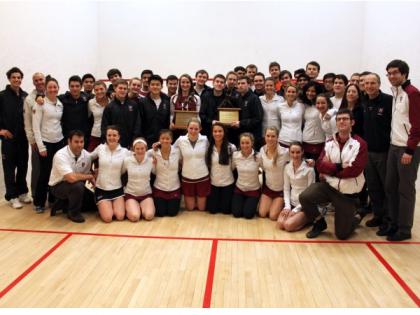Ever since Hurricane Katrina struck the Gulf Coast, Carl Lindahl ’70, a research professor of English at the University of Houston, has been hard at work. In a city inundated with displaced storm survivors, he and fellow folklorists Pat Jasper and Peggy Bulger formulated the Surviving Katrina and Rita in Houston Project, “the first major project in which the survivors take the lead role in documenting [their experiences].”
“We had the idea, very much like the [Works Progress Administration] of the Thirties, [that] here you had a lot of people who would need work and also needed to share their stories,” he explains. “When the students show up to this training, and we ask why they want to do this, they say, ‘We want people to know who we are,’” Lindahl adds. “We feel obligated to be the vessels for that message.”
 |
Photograph courtesy Alice McNamara |
Carl Lindahl shares stories with a young survivor during a canvassing session at a Houston elementary school. |
The project, undertaken together with the Texas Commission on the Arts, the University of Houston, and the American Folklife Center at the Library of Congress, has earned national media exposure and Lindahl hopes to produce additional public programming, particularly in Houston. “I think [Katrina] is the center of a big national debate over how generous Americans can afford to be,” he says. “[In Houston], there’s been backlash based on ignorance: people saying, ‘Katrina is ruining the town.’ I believe [the project] will lead to a great deal of social healing, and make people realize, in a way that they don’t now, the magnitude of this disaster and the heroism of these people who are stereotyped as deadbeats or criminals.”
Project participants enter what Lindahl calls “a five-day boot camp” that consists of training in interviewing techniques and in the use of recording equipment. These “survivor-interviewers” are then paid to seek out fellow survivors and get their stories on tape. The unique nature of the interviews, Lindahl believes, arises not only from the shared experience of the interviewers and subjects, who hail from all regions of the Gulf Coast, but also from interviewing techniques that allow the subjects to guide the stories.
The project is on a “very tight” budget, Lindahl notes, with each participant receiving up to $2,250 for undergoing training and conducting interviews. The directors hope to provide the interviewers with marketable skills, and eventually to secure enough funding so that the project itself can offer longer-lasting, more lucrative job opportunities, such as community liaison positions.
There have already been success stories. “One of our first trainees, Glenda Harris, was immediately hired [after her stint in the project] to work as the Katrina specialist for the Children’s Defense Fund,” Lindahl reports. “She produced a booklet [for them] featuring the storm stories and recovery stories of child survivors. Darrel Holnes, a Panamanian, is currently working on a film project to give voice to immigrant communities displaced to Houston by the hurricanes.”
Once the project has been completed, the accounts of the survivors will be preserved at the American Folklife Center in Washington, which houses collections of interviews and other media documenting disasters that range from Pearl Harbor to September 11. Lindahl is convinced that his own work will not be finished until early 2008, at least, because new issues surrounding the effects of Katrina and Rita continue to arise. “It’s not just history we’re doing, it’s current events,” he explains. “The victims tell us, ‘Katrina’s not over.’ For them this is one rolling problem—people are still dying or scared. It’s an ongoing disaster.”
~Ashton R. Lattimore








